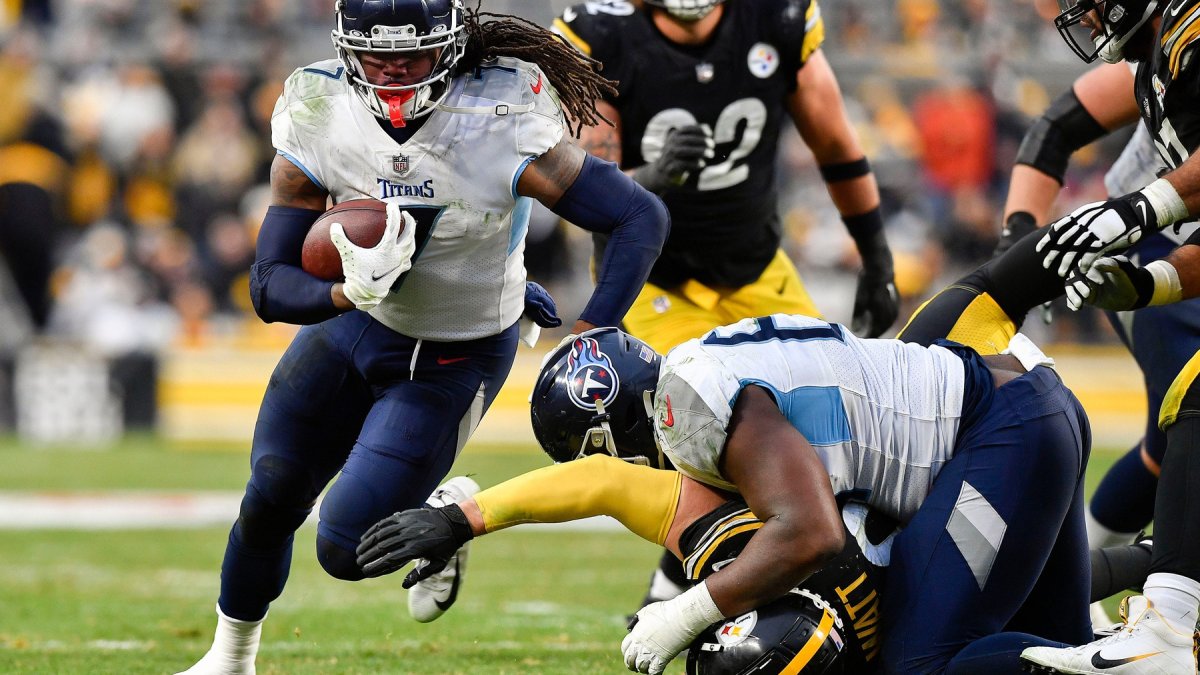With the holiday season finally upon us, NFL fans up and down the country will be wishing for one thing above any other: a playoff berth for their favorite team. And if that particular wish has already been granted, the wish will be for their team to enter the postseason in the best position possible.
While a Week 16 win will go a long way for most NFL teams' playoff chances, very few teams control their own fate at this point of the season. So, fans will also have to follow other games and root for teams they could have never dreamed of rooting for when the season began.
PFF has used its simulation to bring you the definitive rooting interest guide for every NFL Week 16 game, helping fans figure out which teams they have to cheer on this week.
Click here for more PFF tools:
Rankings & Projections | WR/CB Matchup Chart | NFL & NCAA Betting Dashboards | NFL Player Props tool | NFL & NCAA Power Rankings
Method
When it comes to analyzing rooting interests through a large set of simulated regular-season outcomes, it’s important to note that correlation doesn’t equal causation.
For example, the Tampa Bay Buccaneers defeat the Carolina Panthers in roughly 77% of our simulations, and the Los Angeles Chargers make the playoffs 69.1% of the time in those simulations. In the simulations that have the Panthers winning, the Chargers make the playoffs 68.4% of the time.
Does this mean the Chargers should root for the Buccaneers on Sunday? No, not necessarily. The fact that the Chargers did better after a Bucs win is just pure noise of the simulation, as there is no connection between that game and the Chargers' playoffs chances.
That's not to say that NFC games can't impact the AFC playoffs — and vice versa — because they can impact strength-of-victory and strength-of-schedule tiebreakers. However, these impacts aren't particularly large and are often smaller than just the noise coming from the simulation.
So, how do we separate correlation caused by noise from an actual causal effect?
The solution is to take each simulation and create a copy of it but with the game in question flipped. To be more concrete, we can take the very first simulation we ran, copy that simulation, and flip the outcome of the Buccaneers-Panthers game in the copy.
By computing the Chargers' AFC seed, which can be either one through seven (or zero if they miss the playoffs completely), we can see whether the Buccaneers-Panthers game has a literal causal effect on the Chargers’ playoff seeding. And by doing this, we can determine the magnitude of the causal effect of the Buccaneers-Panthers game on the Los Angeles Chargers' fortune.
By doing this for each game, we get the effect of each game on each team in the league.
For the sake of completeness, flipping the outcome of the Buccaneers-Panthers game changed the Chargers' playoff seed in zero of our 10,000 simulations. Thus, any causal effect that could be existent through a strength-of-victory tiebreaker, such as the Buffalo Bills‘ and New England Patriots‘ victories against the Panthers, is estimated to be smaller than 0.01%.
However, in three of our 10,000 simulations, the outcome of the Buccaneers-Panthers game controlled the Miami Dolphins‘ fortune, as a Panthers' victory is crucial for a strength-of-victory tiebreaker against the Cincinnati Bengals and propels Miami into the postseason. Hence, we estimate the causal effect to be 0.03%.
This shows that there can exist real causal effects that would manifest themselves at a much lower rate than 0.6% — the noise we’ve measured for the Chargers' playoff hopes when subsetting the simulations to a Bucs win or loss. This illustrates how crucial our choice of method is toward this exercise.
Making the playoffs
Without further ado, here is a table that illustrates how each game affects each team's playoff chances.
Every Week 16 game's impact on every team's playoffs chances. The color indicates the rooting interest (blue = root for home win, orange = root for road win), the number indicates the difference in playoff odds depending on who wins. pic.twitter.com/6CrPizu3qf
— Timo Riske (@PFF_Moo) December 22, 2021
As an example of how to read the table, consider the Baltimore Ravens.
Obviously, they want to win their own game at Cincinnati, so they root for a road win in that game, which is why the table cell is colored orange. If they win this game, their chance to make the playoffs is 53.3 percentage points higher than if they lose this game. So, it’s obviously the most crucial game for them this weekend.
However, other games also matter for Baltimore. For example, the Ravens obviously want the Cleveland Browns to lose, so they root for the home team in the Browns-Green Bay Packers game. The difference in the Ravens’ playoff chances with a Browns win or loss is estimated to be 8.0%, the most impactful game for the Ravens behind their own.
In general, we see that the Ravens are impacted by several games and are likely the most impacted team this week when it comes to making the playoffs.





 © 2024 PFF - all rights reserved.
© 2024 PFF - all rights reserved.